The FoSTr Programme
Foresight for Food Systems Transformation
The Foresight for Food Systems Transformation (FoSTr) programme provides a support facility for food systems foresight. The country-led, multi-stakeholder foresight process assists national food systems transformation in Bangladesh, Jordan, Kenya and Uganda. FoSTr supports the dialogue, analysis and understanding necessary for co-creating food systems of the future that are sustainable, healthy, equitable and resilient. FoSTr also supports the global networking and knowledge-sharing activities of the Foresight4Food Initiative.
What does FoSTr offer?
- Support for organising national food system foresight processes with broad stakeholder involvement
- Opportunities for enhancing the capability of research institutions, government agencies, and community organisations to facilitate and support food systems foresight processes
- Access to better ‘futures knowledge’ on food systems for policymakers and other decision-makers
- Insights into options and pathways for food system transformation
- Practical methods and tools for facilitating food systems analysis and foresight processes
- Multi-stakeholder engagement and learning informed by access to data, use of computer modelling, and graphic presentation of critical information
- A mechanism for countries to share experiences and learn from each other’s experiences
- Through the Foreisght4Food initiative, a global community of practice for providers and users of food systems foresight
Implementation and funding
FoSTr operates under the umbrella of the Foresight4Food Initiative. The programme has been funded by the Netherlands through the International Fund for Agricultural Development (IFAD) and delivered by members of the Foresight4Food network with National institutions supported to deliver in-country work.
The programme is managed on behalf of Foresight4Food by the University of Oxford’s Environmental Change Institute (ECI) in partnership with Wageningen University and Research and collaborates with initiatives of the CGIAR, the Rome Based Agencies (IFAD, FAO, WFP) and other groups working on food systems transformation. In Africa, the reach of the FoSTr programme is extended through a partnership between Foresight4Food and the Forum for Agriculture Research in Africa (FARA), under the umbrella of the Africa Foresight Academy.
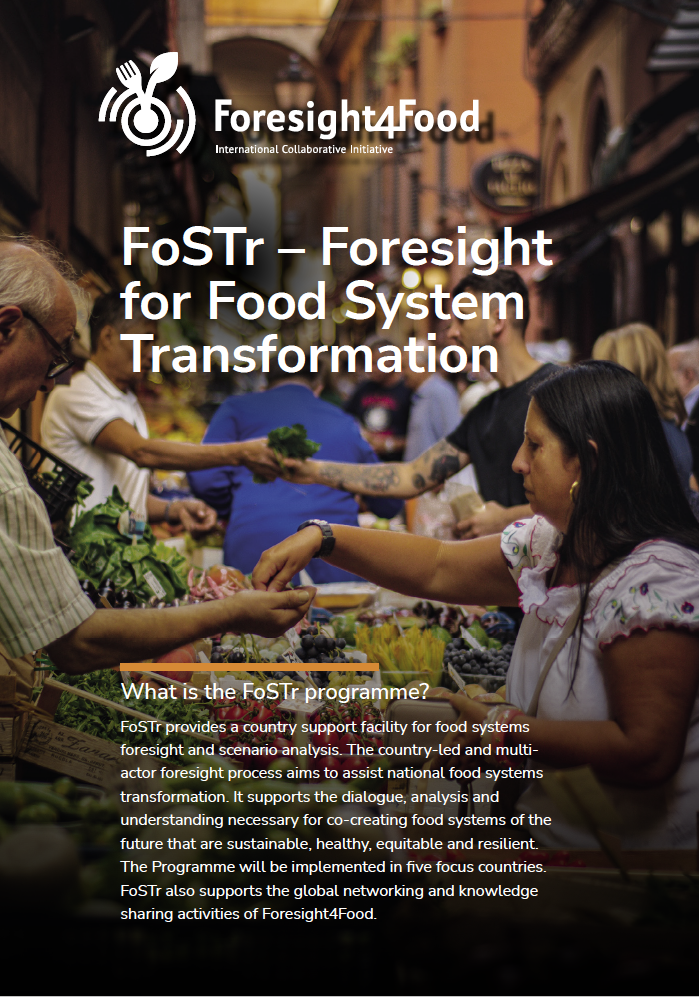
How will FoSTr work at the country level?
The FoSTr programme is designed to align with the needs and priorities of its focus countries, working in close collaboration with other in-country initiatives. It provides both technical support and financial resources to empower local institutions in organizing and facilitating foresight and scenario analysis processes involving stakeholders across the food system.
Launched in 2022 and running through 2025, the programme began with comprehensive country-level food systems analysis and foresight exercises. Building on this foundation, subsequent phases have been dedicated to addressing priority local and national challenges, driving transformative change in food systems.
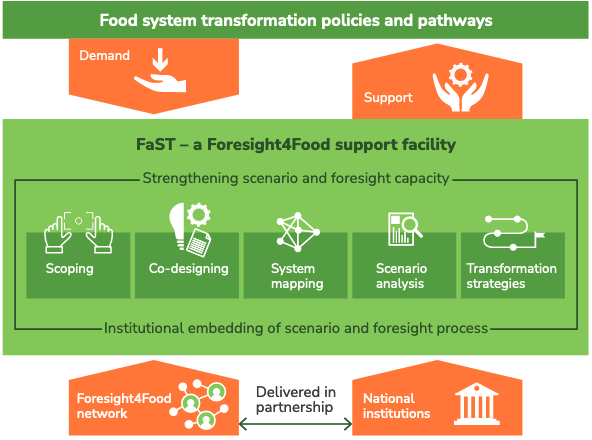
In-Country Impact: Strengthening Foresight Processes
In 2023 and 2024, under the FoSTr programme, participatory, evidence-based foresight processes in each of the four focus countries have been established. In each country, a range of multi-stakeholder workshops, food system analyses, policy papers and quantitative modelling have been used to support the national food system transformation agenda with key insights. Furthermore, national foresight processes gained momentum with the support of FoSTr programme, engaging a wide range of stakeholders, including government bodies, research institutions, and community representatives. In total, 403 individual stakeholders participated in in-country workshops across the four countries, contributing to meaningful conversations about the future of food systems.
Here is a quick overview of FoSTr programme’s progress in each of the focus countries:
Bangladesh – Strong government buy-in has been established, with collaboration from the Ministry of Food and other key players, all contributing to the national food system transformation agenda.
Jordan – Partnerships with the Ministry of Agriculture and other government entities have positioned FoSTr as a key advisor, particularly in driving forward the work of the newly established Food Security Council.
Kenya – Foresight analysis has been particularly active at both the national and county levels, with significant involvement from the Nakuru and Marsabit County governments.
Uganda – FoSTr is closely aligned with the Uganda Planning Authority, helping develop foresight tools for future food system planning.
Knowledge Base
FoSTr also played a vital part in strengthening the Foresight4Food Resource Portal, which provides access to Foresight Studies, key data around Food System Drivers and Outcomes, a database of Foresight Initiatives, and other academic literature that helps food systems practitioners develop better Foresight Models. The Foresight4Food Resource Portal is regularly updated with the latest research and emerging studies as well as products and resources that come out of different programme activities.
The research agenda under FoSTr has mapped key drivers and trends in food systems and analyzed the role of foresight in enabling transformative change. These insights continue to shape foresight practices and their integration into decision-making processes.
The FoSTr programme has also marked a significant online presence through Cross-country Virtual Learning Session, FoSTr Facilitated Online Course Webinar Series, a number of workshops and interactive webinars. Moreover, the work of FoSTr programme was very well-received at the 4th Global Foresight4Food Workshop in Dhaka, where more than 120 foresight practitioners from Asia, Africa, and Europe gathered to share insights on foresight methodologies and food system challenges.
In Africa, FoSTr’s reach is being amplified through partnerships with the Forum for Agricultural Research in Africa (FARA) via the African Foresight Academy. In Asia, it collaborates with the International Centre for Integrated Mountain Development (ICIMOD) and the Asia-Pacific Association of Agricultural Research Institutions (APAARI), ensuring a robust and regionally nuanced approach to food systems foresight.
The Way Forward
In 2025, the FoSTr programme aims to focus on linking foresight and scenarios to systems change and policy recommendations in the four countries. In each country, FoSTr continues to strengthen the links with existing in-country initiatives, empowering the in-country implementation teams and brokering the establishment of sustainable foresight processes tailored to the needs of focus countries.
Brokering Foresight Processes: Continue to build connections with national stakeholders and existing initiatives, ensuring that foresight insights are integrated into policy-making and planning processes.
Capacity Building: Organize intensive face-to-face training workshops to further enhance foresight facilitation skills and broaden participation from underrepresented groups, including the private sector and youth.
Scenario Analysis and Policy Recommendations: Complete the ongoing scenario analyses and translate these into clear policy recommendations that will guide national food system transformation agendas.
Sustaining Momentum Beyond 2025: Establish sustainable communities of practice that can continue to drive foresight activities beyond the programme’s official end.
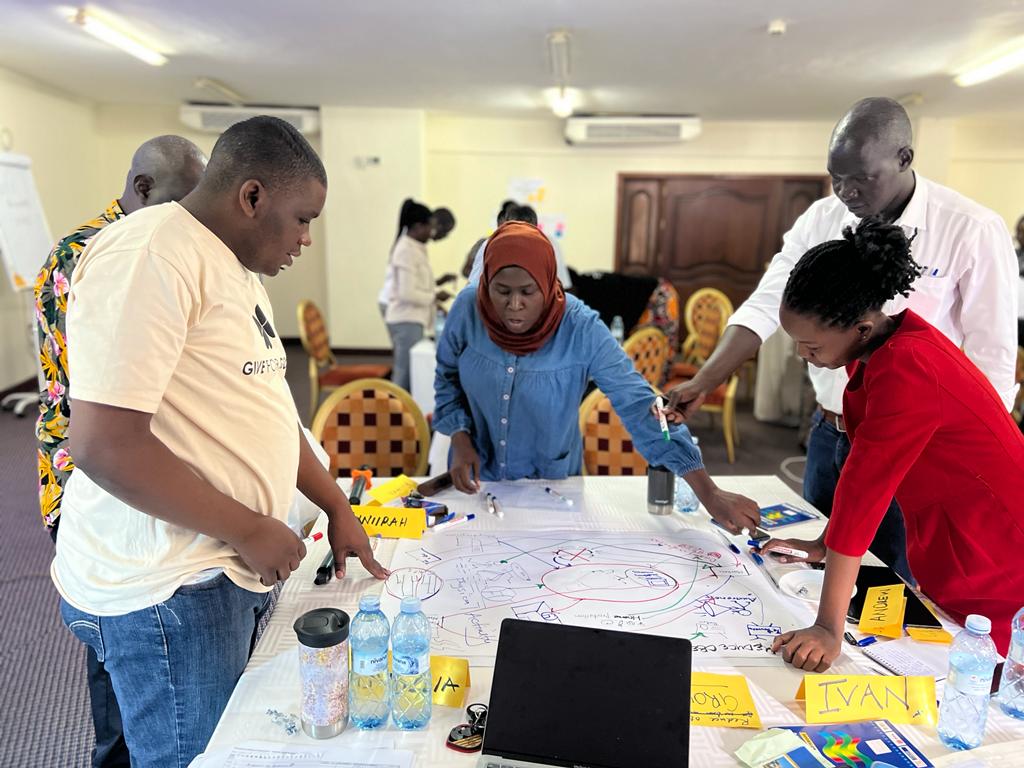

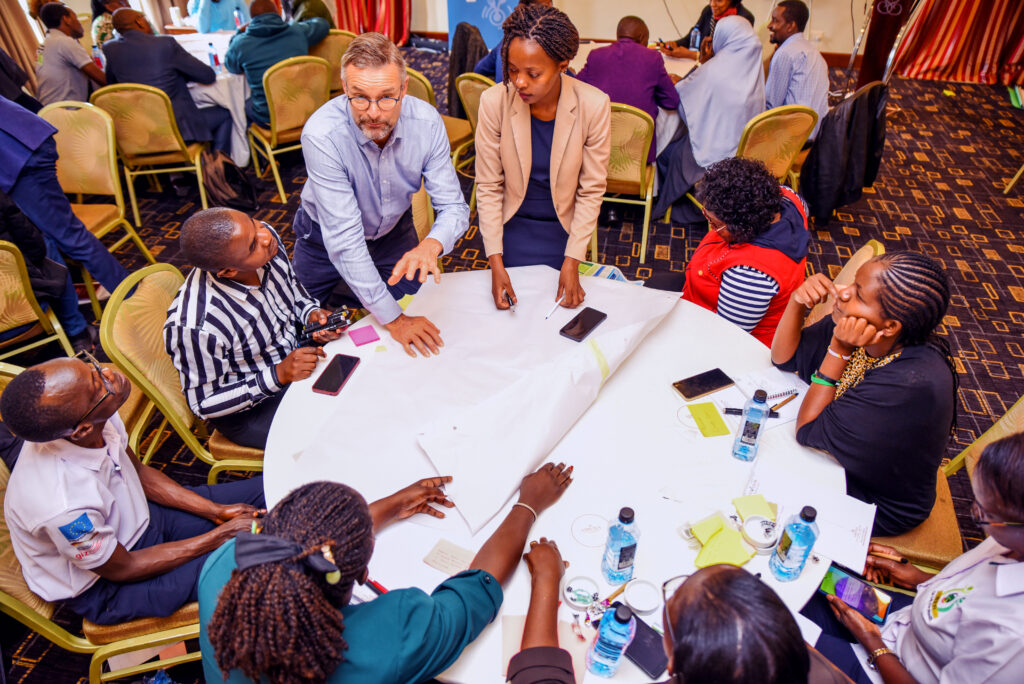
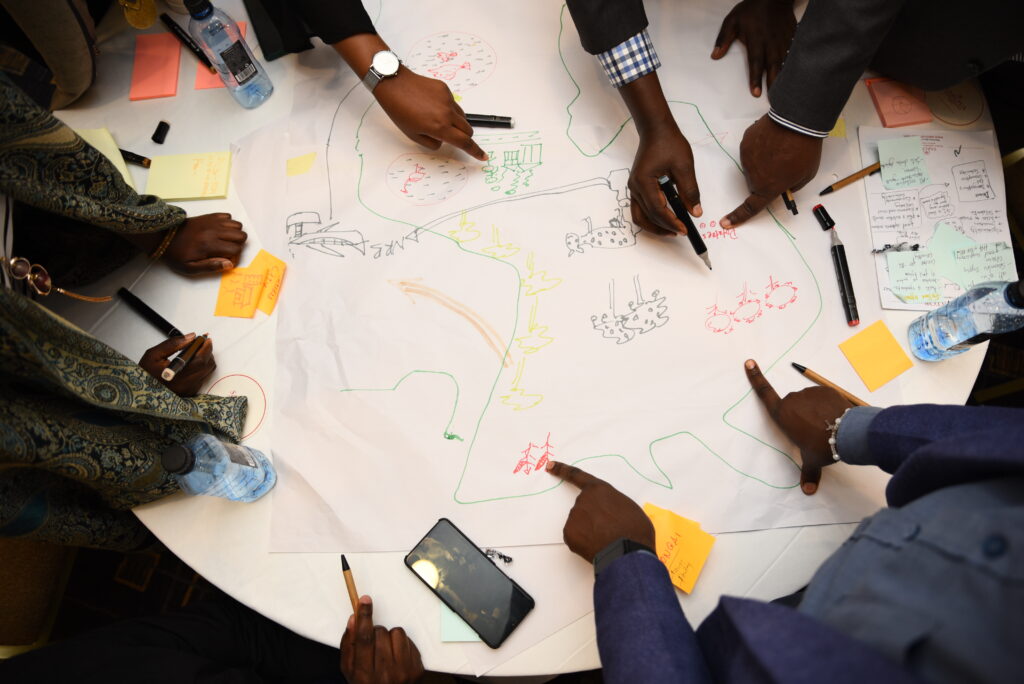
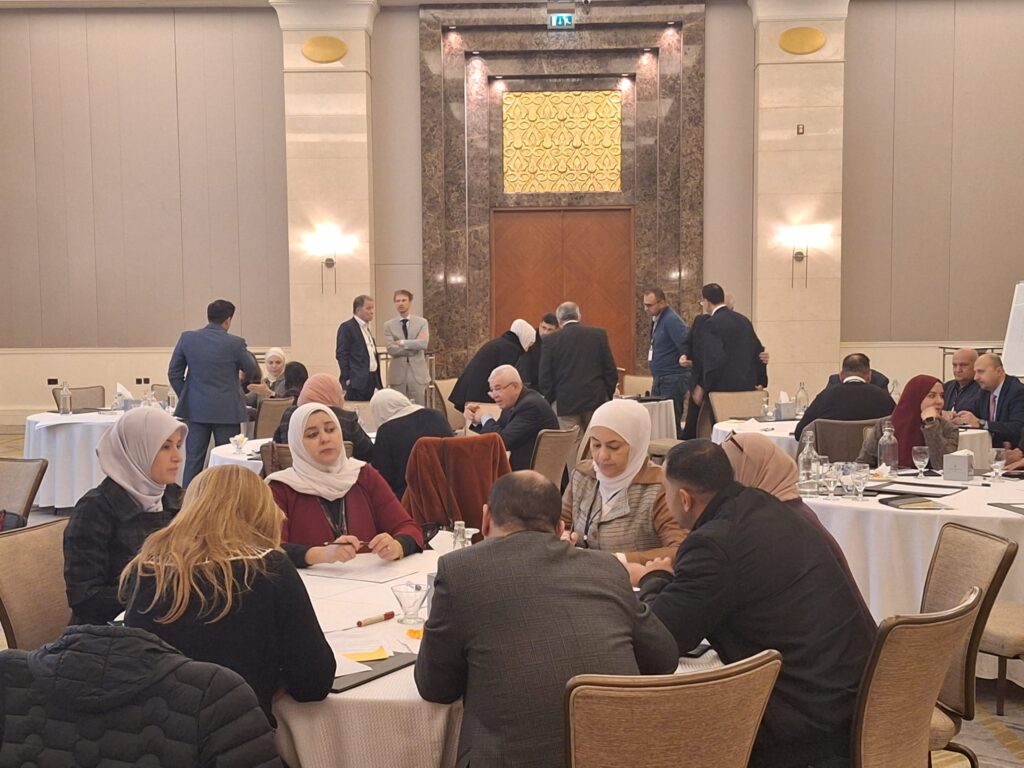
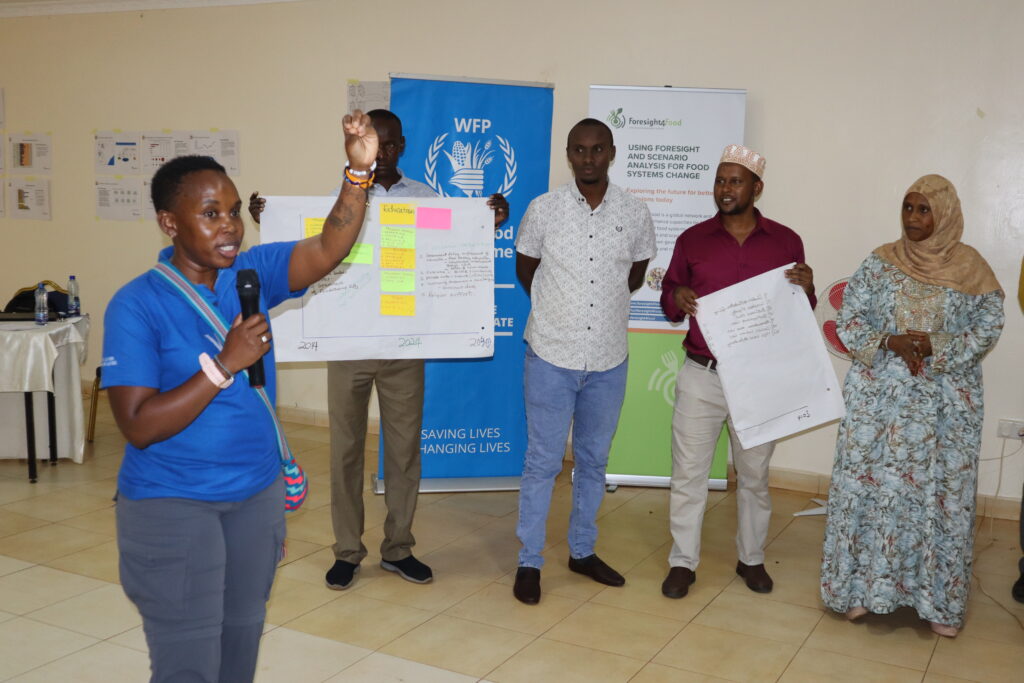
FoSTr Team
The FoSTr programme is managed and supported by the following members.
Jim Woodhill is a Senior Consultant with the University of Oxford’s Environmental Change Institute co-leading the Foresight4Food Initiative and also working as an independent consultant. He is a specialist on inclusive agribusiness, rural development, food security and multi-stakeholder partnerships…
Monika Zurek is co-leading the Foresight4Food Initiative and the FoSTr programme. She has worked on food systems, environment and development interactions and scenario analysis in research, international organizations, the philanthropic sector as…
Just Dengerink is a Food Systems Advisor at Wageningen Centre for Development Innovation and Country Facilitator for Foresight4Food FoSTr programme, coordinating participatory scenario and foresight processes…
Bhawana is a Post-Doctoral Researcher with Food Systems Transformation Group at Environmental Change Institute. She is a geographer and a systems thinker with a keen interest in global environmental challenges.
Walid Abed Rabboh is a prominent agricultural, food security, and natural resource management expert who worked for several public, private, and UN agencies at national, regional, and international levels in developing policies, strategies, and plans.
Stellah Byakika is the FoSTr country facilitator for Uganda. She is a lecturer in the Department of Food Technology and Nutrition, at Makerere University, Kampala, Uganda. She holds a Ph.D., MSc., and BSc. in Food Science and Technology. She is involved in teaching various food science courses, related to food safety, food value addition, postharvest management and nutrition in which she…
John Ingram leads the Food Systems Transformation Research Group within the Environmental Change Institute, University of Oxford as well as the multi-university post-graduate ‘Interdisciplinary Food Systems Teaching and Learning’ programme (IFSTAL); co-leads the Foresight4Food (F4F)…
Herman Brouwer is a specialist on multi-stakeholder collaboration in agriculture, food and nature, working with WCDI at Wageningen University & Research. He’s responsible for the overall delivery of the Foresight4Food Initiative…
Bram Peters is a Food Systems Programme Facilitator working at University of Oxford. In this role, Bram contributes to furthering the global learning and knowledge brokering agenda of the FoSTr programme and facilitates strategic engagement among stakeholders.
Zoe Barois is a junior advisor for food systems transformation working at Wageningen Centre for Development Innovation. In this role, she provides analytical and organizational support for food system transformation…
Wangeci Gitata-Kiriga is the Country Facilitator for Foresight4Food FoSTr Kenya. A sought-after facilitator, moderator, and market systems development expert, Wangeci has facilitated global convenings
Mohammad Monirul Hasan is the FoSTr country facilitator for Bangladesh. Dr. Hasan is a Country Advisor for Foresight for Food Systems, Social Protection, and Environment in the Global Alliance for Improved Nutrition (GAIN) in Bangladesh. Being an economist, Dr. Hasan is working broadly on food systems…